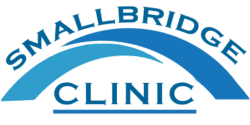
Super-Specialised Physiotherapy
Super-Specialised Physiotherapy
Paediatric and Neurodevelopmetal Physiotherapy
Pediatric physiotherapy is a specialized branch of physiotherapy focused on the assessment, diagnosis, and treatment of children and adolescents with various physical and developmental conditions. This type of physiotherapy aims to help children achieve their maximum physical potential and improve their overall quality of life. Here is a detailed overview of pediatric physiotherapy services under following grant of CQC registration:
Conditions Treated in Pediatric Physiotherapy
-
Developmental Delays:
- Conditions such as global developmental delay, gross motor delays, and fine motor delays.
-
Neurological Disorders:
- Cerebral palsy, spina bifida, muscular dystrophy, and other neuromuscular conditions.
-
Orthopedic Conditions:
- Congenital conditions such as clubfoot, hip dysplasia, and scoliosis.
- Fractures, sprains, and sports injuries.
-
Respiratory Conditions:
- Cystic fibrosis, asthma, and other chronic respiratory diseases.
-
Genetic Disorders:
- Down syndrome, Rett syndrome, and other genetic conditions affecting physical development.
-
Other Conditions:
- Torticollis, plagiocephaly, and developmental coordination disorder (DCD).
Assessment in Pediatric Physiotherapy
-
Initial Evaluation:
- Comprehensive assessment of the child’s medical history, developmental milestones, and physical abilities.
- Observation and measurement of motor skills, muscle strength, range of motion, posture, balance, and coordination.
-
Functional Assessments:
- Evaluations of the child’s ability to perform daily activities, play, and participate in school and community activities.
-
Standardized Tests:
- Utilization of standardized developmental and motor skill assessment tools, such as the Peabody Developmental Motor Scales (PDMS) or the Gross Motor Function Measure (GMFM).
Treatment Techniques in Pediatric Physiotherapy
-
Therapeutic Exercises:
- Customized exercise programs to improve strength, flexibility, balance, and coordination.
- Play-based exercises to engage children and make therapy enjoyable.
-
Neurodevelopmental Treatment (NDT):
- Techniques to promote normal movement patterns and inhibit abnormal muscle tone.
-
Sensory Integration Therapy:
- Activities designed to help children process and respond to sensory information effectively.
-
Manual Therapy:
- Hands-on techniques such as joint mobilization, soft tissue massage, and stretching.
-
Postural Management:
- Positioning and support strategies to promote optimal posture and prevent deformities.
-
Assistive Devices and Equipment:
- Recommendations and training for the use of orthotics, walkers, wheelchairs, and other adaptive equipment.
-
Hydrotherapy:
- Water-based exercises to improve movement and strength with reduced joint stress.
-
Respiratory Therapy:
- Techniques to improve lung function, clear secretions, and enhance breathing efficiency.
Goals of Pediatric Physiotherapy
-
Enhance Physical Development:
- Promote normal growth and development, and help children reach developmental milestones.
-
Improve Functional Abilities:
- Enhance the child’s ability to perform daily activities, participate in play, and engage in school and community life.
-
Increase Independence:
- Foster greater independence in movement and self-care activities.
-
Pain Management:
- Alleviate pain associated with injuries or chronic conditions.
-
Support Family Education and Involvement:
- Educate and involve families in the therapeutic process to support the child’s progress at home and in the community.
Importance of Early Intervention
- Maximizing Potential: Early intervention can significantly improve outcomes by addressing developmental issues promptly and providing the necessary support during critical periods of growth.
- Preventing Secondary Complications: Timely physiotherapy can prevent or minimize secondary complications such as joint deformities, muscle contractures, and functional limitations.
- Enhancing Quality of Life: Early and effective intervention can improve the child’s overall quality of life, enabling better participation in family, school, and social activities.
Pediatric physiotherapy is essential in helping children with physical and developmental challenges to achieve their full potential and lead fulfilling lives. Through tailored interventions and family-centered care, pediatric physiotherapists play a vital role in the health and well-being of children.
